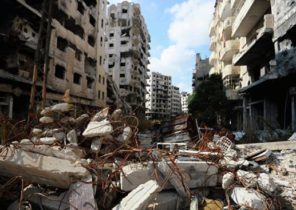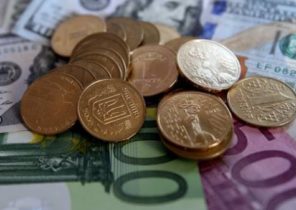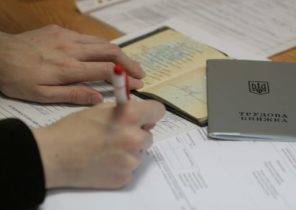
At the Moscow exhibition Moscow Watch Expo, held in mid-October of 2016, the main decoration of the stand of the Russian brand “Glory” became a large clock with the inscription “USSR” on the dial. It was an improved version of the Soviet hours, which were agents of Stalin’s chief of the division of counterintelligence “SMERSH” (“death to spies”). This watch was specially released in honour of the 70th anniversary of the Soviet victory over Nazi Germany in 1945, and the company’s representatives proudly told me about this advanced version hours.
Watch Russian production, such as “Glory”, today not so popular among the national elite as it was before. Representatives of the Russian government switched to a Swiss watch. It is worth remembering the scandals of the press Secretary of Vladimir Putin Dmitry Peskov and head of the Russian Orthodox Church Patriarch Kirill: on their wrist were spotted watch (Richard Mille and Breguet, respectively) that they would not be able to purchase on their salaries. But since against Russia imposed sanctions, the Russian currency plummeted in value, even Swiss watches began to lose popularity.
According to the Federation of the Swiss watch industry from January to November of 2016, the import of Swiss watches to Russia fell by 46% to 136,9 million dollars compared to the same period in 2014. Meanwhile, in the world, the figure is 13.3%. According to the Russian Association of time Time Seller, 446 foreign companies, selling its products in Russia in 2012-2014 in the past year gone from the Russian market.
The fall of the ruble caused by falling oil prices, played an important role in this. January 1, 2014, the dollar cost of 35.18 rubles, and in January 2016, the Russian currency reached a record low of 85.97 ruble per dollar. By January 1, 2017, the ruble slightly strengthened their positions, and the 60,66 rubles per dollar. “Sentiment still remains negative, says Dmitry Krylov, an expert on the clock in Fashion Consulting Group and the head of the portal chasovshik.ru specializing in Swiss watches. — People are experiencing anxiety and don’t want to spend money even if they have savings in hard currency”.
Before the crisis and before the introduction of sanctions against Russians in connection with the invasion of the Crimea, by words g-on Krylov, rich bought the watch two or three times a year. As said General Director Fashion Consulting Group Anna Lebsak-Kleimans, the trend is now “rational investment purchases”.
Experts who visited the exhibition hours, argue that the traditional buyers of expensive watches — the oligarchs and politicians — stopped buying them in the same quantities, but not for lack of money. “Officials almost stopped wearing expensive watches, because luxury goods, which helped them to make the right impression, now turned into a taboo”, — said Vyacheslav Medvedev, General Director of the publishing house Media Watch.
While some brands have lost some of its clientele in Russia, the products of other manufacturers began to great demand from tourists due to the low exchange rate. According to one expert in this area, Mercury Group, which ranks among the leading importers of Swiss watches in Russia, had previously stated that it will not increase prices on their watches to retain customers.
The interest of tourists to expensive watch in the period of falling of the Russian currency went far beyond Moscow, in the Russian regions. According to Konstantin Sobko, the owner of jewelry store hours and Brizo in Samara (1000 kilometers South-East of Moscow), in 2014-2015 the volume of sales his store has almost doubled due to the influx of new buyers.
Mikhail Kasparov, CEO of ProTime Rus, distributor hours brands Frederique Constant, Maurice Lacroix and Escada, says that in some stores half shopping accounts for customers from Asia, attracted by low exchange rate of the Russian currency. One expert who visited the Moscow exhibition hours, said that he saw a Chinese tourist bought Gucci a few hours in the expensive shop on red square and coming out of the store, immediately resold them to other travelers.
To shop in Russia has also become cheaper, because Russia joined the world trade organization, in connection with duties for the clock has decreased from 20% to 7%, as explained by Mr. Kasparov. This was a serious blow for Russian manufacturers of hours, especially for those who produce watches at lower cost.
Guillaume Alix (Alix Guillaume), head of Groupe Montaigne, which owns the retailer is De Bon Ton, explained that “not all brands have decided to change the price — only those who have there branches. If they are on the stock exchange, they need to immediately change the price. On the other hand, the distributors can decide to raise their price or not, because they buy at the old prices”.
For some companies, Russia remains an extremely profitable market, despite the sanctions and economic problems. In 2016, Rolex opened its boutique in the center of Moscow. In November last year, Omega opened its third store in the Russian capital. And Breitling has opened its first store in Moscow in 2014. Given all this, the opening of new stores planned for several years ahead.
On the opening day of the Moscow exhibition hours the mood of the vast majority of visitors were very optimistic, however, warns Mr. Medvedev, who helped in organizing this exhibition, it is still too early to celebrate. “Before our exhibition occupied a large area, but this year we are witnessing the fall of the market. Do not expect any miracles”.
As a joke by another expert, who came to the exhibition, “2017 will undoubtedly be worse than 2016. But it will be better to 2018”.







